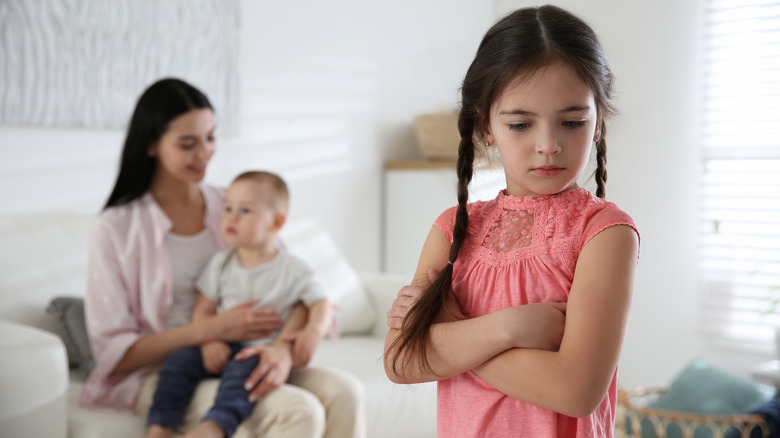The Eldest Daughter Survival Guide: Tips For Being The Unsung Hero Of Your Family
Your birth order says a lot about you. It's something that shapes you as a person pretty much from the moment you enter this world. In some ways, your birth order can work in your favor. As the youngest in the family, you were likely given a lot of freedom to make the world your oyster, explore your choices and take risks. You might've also developed a better sense of humor than your siblings to be able to catch your parents' attention. It may even have filled you with extroverted qualities and greater social skills which have made you the life of the party.
While the youngest thrive at their creative endeavors, the eldest tend to be smarter owing to all the problem-solving they've undertaken. As the eldest child, you've probably turned into a natural-born leader who knows when to stand their ground and when to compromise. You may grow up to have bigger ambitions and actually achieve these goals because of your conscientious and never-ending quest for perfection.
But don't forget the middle child! They develop excellent negotiating, conflict-solving, and peacekeeping abilities from being between the eldest and the youngest kid. They tend to be more independent and laidback and take greater risks because their parents generally go easier on them. Unsurprisingly, middle children are also great team players. While each sibling has their own burden to bear, none have it quite as bad as the oldest daughter.
Why being an eldest daughter is so tough
While eldest siblings of all genders have to assume more responsibility as they grow up, it's generally tougher for women. From a young age, women are taught to be nurturing caretakers, and as the parents' responsibilities increase, they're often left to bridge the gap by acting as a third parent for their siblings by offering emotional support and helping out with household chores. Additionally, the eldest daughter must be a role model for the younger children by staying on track with her education and social responsibilities. To make matters worse, the parents are still learning the ropes with their first child, so they might not give her the nurturing she needs.
Dealing with all of this at a young age can be incredibly damaging. Speaking to Metro, psychotherapist Caroline Plumer explained the ill effects of carrying this burden: "It can also result long-term in a lack of boundaries and a tendency toward people-pleasing behaviors as eldest sisters believe it is their job to be responsible for everybody else's wellbeing and happiness."
The eldest daughter typically expects perfection from herself and others, which can lead to depression upon failure or siblings' success. To achieve this perfection, she might even become obsessive and controlling. She always wants to be the leader, which can cause conflict. The eldest daughter may also develop an unhealthy competitive attitude that leads to jealousy and negativity. Acting as another parent can also bring negativity to normal sibling relations.
Here's how you can cope with being the eldest daughter
When you're thrust into a parental role at a young age, you might find it difficult to express and accept your emotions, but that's the first part of healing from the ill effects of being the eldest daughter. Accept and embrace the anger and sadness that you feel towards your parents. Take time out of your day to reflect on the impact that carrying this burden has had on you. Ask yourself what you would've wanted your parents to do differently and how you'd break the cycle with your present or future children. Journaling every day is a great outlet to express your emotions creatively.
Once you've done that, you can try to forgive them. Always remember that you cannot blame yourself for accepting the role of a parent at a young age. You only did what was expected of you by your caregivers, as Ellen Bradley-Windell, LCSW, clarified to KatieCouric.com. It's hard, but you need to gradually accept that it's not your responsibility to look after everybody else.
As the eldest daughter, it's only natural to be giving, but you have to fight that urge and do what's best for you. Take care of yourself before helping others. Set boundaries for what you're willing to do for your family, and do your best to stick to them. Remember that it's not your job to fix everyone else's problems, and you can help by just listening to them.


